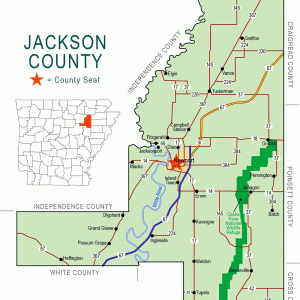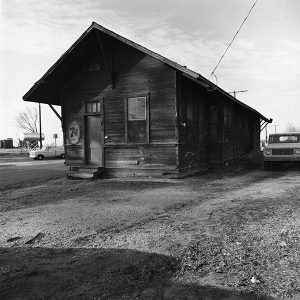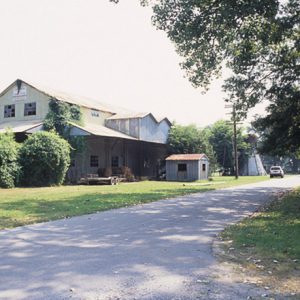calsfoundation@cals.org
Weldon (Jackson County)
| Latitude and Longitude: | 35°26’43″N 091°13’53″W |
| Elevation: | 220 feet |
| Area: | 0.24 square miles (2020 Census) |
| Population: | 57 (2020 Census) |
| Incorporation Date: | November 30, 1961 |
Historical Population as per the U.S. Census:
|
1810 |
1820 |
1830 |
1840 |
1850 |
1860 |
1870 |
1880 |
1890 |
1900 |
|
– |
– |
– |
– |
– |
– |
– |
– |
– |
– |
|
1910 |
1920 |
1930 |
1940 |
1950 |
1960 |
1970 |
1980 |
1990 |
2000 |
|
– |
– |
– |
– |
– |
– |
133 |
161 |
106 |
100 |
|
2010 |
2020 |
|
|
|
|
|
|
|
|
|
75 |
57 |
|
|
|
|
|
|
|
|
Weldon is a town in Jackson County, south of the county seat, Newport (Jackson County). It is on State Highway 17 between Auvergne (Jackson County) and Tupelo (Jackson County); the White River valley lies to the west of Weldon, and the Cache River plains lie to the east.
Archaeological evidence indicates that Jackson County has been inhabited for up to 10,000 years. The first white explorers and settlers entered the county by way of the White River, creating such settlements as Newport and Jacksonport (Jackson County).
In 1831, Alvin McDonald moved from Tennessee to Jackson County, first purchasing land northeast of Newport but later farming near the present site of Weldon. McDonald raised cattle and hogs, and grew corn, potatoes, and cotton. He is thought to have built and operated his own gin. After the Civil War, cotton prices increased and many farmers began to devote large portions of their land to the lucrative crop.
The Batesville and Brinkley Railroad was established in 1882 to carry cotton and lumber to market. The railroad ran through Tupelo, Weldon, and Auvergne on the way to Newport. The name of the railroad was changed to the White and Black River Valley Railway; it then became part of the Chicago, Rock Island and Pacific Railroad.
A post office opened at the depot in Weldon in 1885. For the first year, the post office was identified as Wise, so named for postmaster Robert Wise, who also had a drugstore and grocery store. His brother W. H. Wise had cleared much of the land on which Weldon would emerge; he was co-owner of a general store and also owned much of the property where homes were built for Weldon residents. A Methodist church was established in Weldon in 1886. By 1889, according to the Goodspeed accounts of local history, Weldon had two general stores, two grocery stores, a hotel, and a post office. A school was also active in Weldon during the 1890s. The town was a local center for the Back-to-Africa movement and gained some notoriety in 1892 when G. P. F. Lightfoot was murdered after apparently defrauding several local African Americans with promises of passage to Liberia. The cotton gin in Weldon continued to be operated by the McDonald family into the 1930s. The Rock Island Railroad reported an estimated population of 125 residents of Weldon during this period.
Electrical service came to Weldon during the late 1930s, and the McDonald brothers hired Continental Gin Company to rebuild the gin to use electricity. New equipment was installed and operating by 1939. Although the Rock Island line closed the White and Black River Valley Railway the next year, highways had been improved in the county, and cotton ginned in Weldon was transported to Newport by truck. In the 1970s, farming of rice and soybeans began to supplant the cotton crop of the area, and the gin ceased operations around 1980. On June 4, 2008, the gin and its outbuildings were added to the National Register of Historic Places.
To provide city services, the town of Weldon incorporated in 1961. Nevertheless, the post office closed in 1966. The Methodist congregation ceased meeting in 1971, and the church building was later sold to the town government for a city hall and community activities center. The Weldon Gin Company Historic District was listed on the National Register of Historic Places in 2008. The Weldon train depot was added to the National Register of Historic Places in 1992, but disintegration of the structure led to its removal twenty years later. The population of Weldon diminished from 133 in 1970 to seventy-five in 2010; nearly every citizen of Weldon is white. It remains a residential and agricultural town, and its residents generally shop in Newport.
For additional information:
Emerson, Ruth. “A History of the Weldon Methodist Church.” The Stream of History 21 (September 1984): 6–15.
“Weldon Gin Company Historic District.” National Register of Historic Places nomination form. On file at Arkansas Historic Preservation Program, Little Rock, Arkansas. Online at http://www.arkansaspreservation.com/National-Register-Listings/PDF/JA0525.nr.pdf (accessed October 9, 2020).
Steven Teske
Butler Center for Arkansas Studies
 Jackson County Map
Jackson County Map  Weldon Depot
Weldon Depot  Weldon Gin Company Historic District
Weldon Gin Company Historic District 




Comments
No comments on this entry yet.